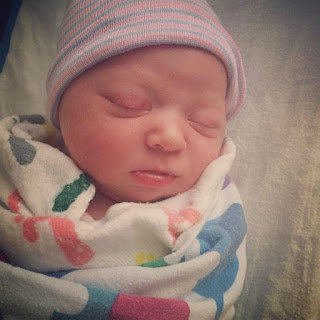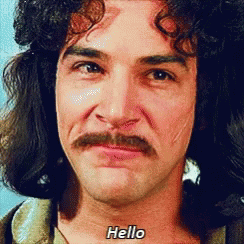And I like abnormal too. Without “abnormal psychology” I wouldn’t have a job [1]. It’s not a coincidence that I feel right at home in the city that prides itself on being weird. I wear long hair and a beard when my Mormon Restored Church community generally frowns upon it [2].
But sometimes a little normal is what I need.
Like today. Today my daughter Rosaleen was born. And it was normal. Camille (my wife, and also one of the toughest, most resilient people I know) didn’t spend days in the delivery room, nor did she pop out a kid in under five minutes. She didn’t have any life threatening (or even seriously life-altering) complications, and it wasn’t completely painless. And Rosaleen wasn’t speaking in full sentences, but neither was she struggling to breathe or circulate blood. As far as I could tell, everything was normal.
 |
| Sleepy is normal on the first day. Posing would not be normal. |
 |
| The look on Lily's face is new, not normal for her, but it might become normal soon |
And after my family’s last two experiences in hospital maternity units, we needed some normal. Lily, our older daughter, was born two months early after a very short labor. She had some scary but easily treated problems (that I have since learned are also fairly normal... go figure). Then we lost our Michael a few months into the pregnancy.
It all makes me glad that I live in a place and time when it’s normal for babies and their moms to survive being born. And that I got to experience that bit of normalcy.
[1] Abnormal psych was one of my favorite college classes, and one of the most influential in my decision to become a therapist. However, to paraphrase Michael Bluth, these days “we just say psychology.” I mean is anyone really normal enough to set the standard for comparison?
[2] “In the minds of most people at this time, the beard and long hair are associated with protest, revolution, and rebellion against authority. They are also symbols of the hippie and drug culture. Persons who wear beards or long hair, whether they desire it or not, may identify themselves with or emulate and honor the drug culture or the extreme practices of those who have made a slovenly appearance a badge of protest and dissent. In addition, unkemptness—which is often (though not always) associated with beards and long hair—is a mark of indifference towards the best in life (New Era, December 1971 p. 46).
